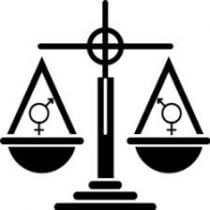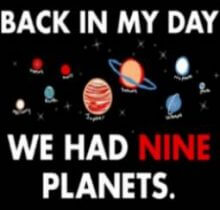 Today is Women’s Equality Day, created in 1972 to commemorate the date in 1920 when, after decades of effort by activists across the country, the 19th Amendment to the U.S. Constitution was ratified, granting women the right to vote.
Today is Women’s Equality Day, created in 1972 to commemorate the date in 1920 when, after decades of effort by activists across the country, the 19th Amendment to the U.S. Constitution was ratified, granting women the right to vote.
Fifty years later, on August 26, 1970, feminist Betty Friedan led a nationwide protest called the Women’s Strike for Equality to demand the fair treatment of women in the workplace, in school and at home.
U.S. Representative Bella Abzug championed the establishment of a day to symbolize the rights that women (and men) had struggled to make a reality.
On August 26, 1972, the first Women’s Equality Day took place. The Joint Resolution of Congress reads:
Designating August 26 of each year as Women’s Equality Day
WHEREAS, the women of the United States have been treated as second-class citizens and have not been entitled the full rights and privileges, public or private, legal or institutional, which are available to male citizens of the United States; and
WHEREAS, the women of the United States have united to assure that these rights and privileges are available to all citizens equally regardless of sex; and
WHEREAS, the women of the United States have designated August 26, the anniversary date of the certification of the Nineteenth Amendment, as symbol of the continued fight for equal rights: and
WHEREAS, the women of United States are to be commended and supported in their organizations and activities,
NOW, THEREFORE, BE IT RESOLVED, the Senate and House of Representatives of the United States of America in Congress assembled, that August 26th of each year is designated as Women’s Equality Day, and the President is authorized and requested to issue a proclamation annually in commemoration of that day in 1920, on which the women of America were first given the right to vote, and that day in 1970, on which a nationwide demonstration for women’s rights took place.
In 1981, Congress enacted Public Law 97-28, designating the week beginning March 7, 1982, as Women’s History Week. President Ronald Reagan issued Presidential Proclamation 4903 stating, in part:
NOW, THEREFORE, I, RONALD REAGAN, President of the United States of America, do hereby proclaim the week beginning March 7, 1982, as Women’s History Week. Recognizing that the many contributions of American women have at times been overlooked in the annals of American history, I encourage all citizens to observe this important week by participating in appropriate ceremonies and activities planned by individuals, governmental agencies, and private institutions and associations throughout the country.
The practice continued until 1987 when, in response to petitioning by the National Women’s History Project, Congress passed Public Law 100-9 declaring March Women’s History Month. It passed a new resolution each year asking the president to authorize the observance. Since 1995, Presidents Clinton, Bush, Obama and *cough* Trump have issued annual proclamations renewing Women’s History Month.
The month was chosen because International Women’s Day falls on March 8th, despite the fact that the 1908 garment workers’ strike it was meant to memorialize didn’t happen on that date. The first known International Women’s Day gathering in the U.S. took place at New York’s Carnegie Hall on February 27, 1910.
In 2011, Representative Carolyn Maloney introduced a bill calling for the establishment of Susan B. Anthony Day honoring the birthday on February 15, 1820, of the abolitionist and suffragette. Thus far, it is observed in only five states. No national holiday honors any woman’s birthday.
Equal Pay
On June 10, 1963, President John F. Kennedy signed the Equal Pay Act. Its stated purpose: “to prohibit discrimination on account of sex in the payment of wages by employers engaged in commerce or in the production of goods for commerce.”
In 1963, women made 59 cents on average for every dollar earned by men, based on Census figures of median wages of full-time, year-round workers.
On July 2, 1964, President Lyndon B. Johnson signed the Civil Rights Act, after pushing it through Congress to fulfill the plan Kennedy made before he was assassinated. It outlawed discrimination based on race, color, religion, national origin or gender.
In April 1996, the National Committee on Pay Equity (NCPE) originated National Equal Pay Day to promote public awareness of the gap between men’s and women’s wages. Each year, a date is chosen in April to illustrate how far into the new year women have to work to earn the same wages that men make in the previous year. In 2016, April 16 was chosen.
According to the US Congress Joint Economic Committee, a woman earns 80 cents for every dollar a man is paid for the same job. This statistic doesn’t tell the whole story, though. Black women make an average of 62 cents and Latinas earn 54 cents for every dollar paid to a white, non-Hispanic man. At this rate, the pay gap won’t close until 2059, according to the Institute for Women’s Policy Research.
Happy Women’s Equality Day! Perhaps when we’re equal every day of the year we won’t need to create any more holidays to celebrate it.




![]()

 Today is National Petroleum Day, also known as Oil and Gas Industry Appreciation Day.
Today is National Petroleum Day, also known as Oil and Gas Industry Appreciation Day. Today is Women’s Equality Day, created in 1972 to commemorate the date in 1920 when, after decades of effort by activists across the country, the 19th Amendment to the U.S. Constitution was ratified, granting women the right to vote.
Today is Women’s Equality Day, created in 1972 to commemorate the date in 1920 when, after decades of effort by activists across the country, the 19th Amendment to the U.S. Constitution was ratified, granting women the right to vote.